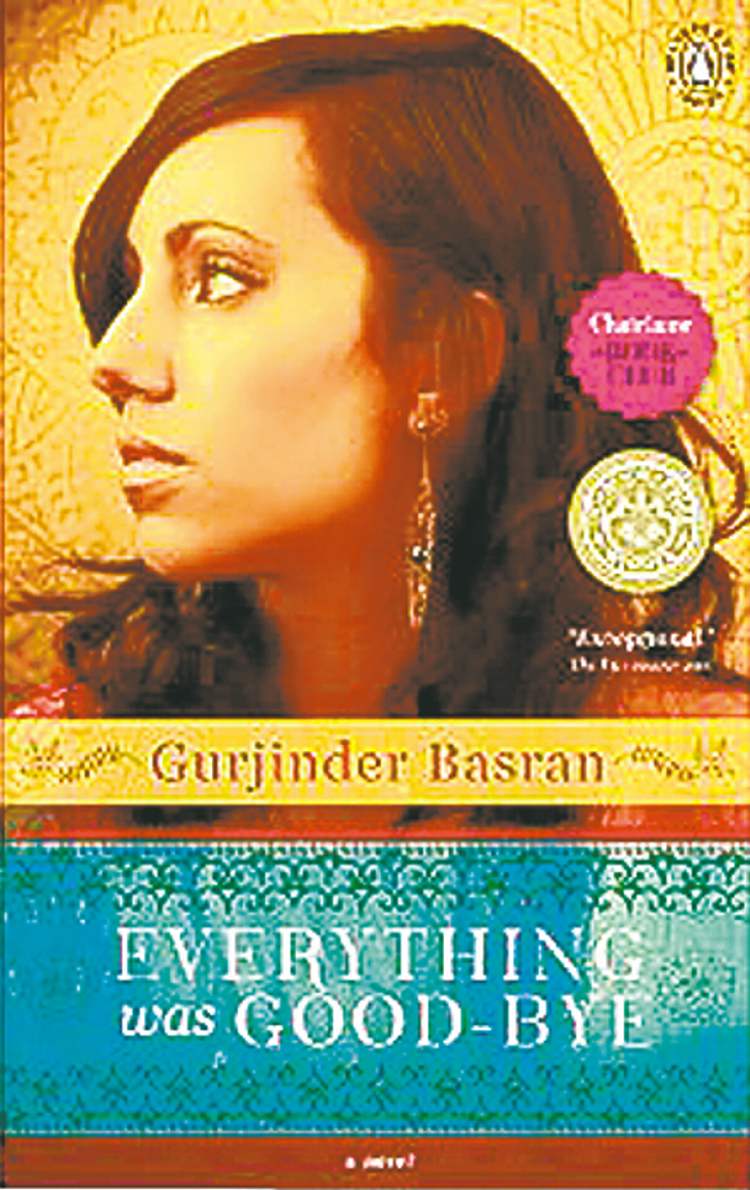Compelling debut novel takes on weighty is
Advertisement
Read this article for free:
or
Already have an account? Log in here »
To continue reading, please subscribe:
Monthly Digital Subscription
$0 for the first 4 weeks*
- Enjoy unlimited reading on winnipegfreepress.com
- Read the E-Edition, our digital replica newspaper
- Access News Break, our award-winning app
- Play interactive puzzles
*No charge for 4 weeks then price increases to the regular rate of $19.95 plus GST every four weeks. Offer available to new and qualified returning subscribers only. Cancel any time.
Monthly Digital Subscription
$4.99/week*
- Enjoy unlimited reading on winnipegfreepress.com
- Read the E-Edition, our digital replica newspaper
- Access News Break, our award-winning app
- Play interactive puzzles
*Billed as $19.95 plus GST every four weeks. Cancel any time.
To continue reading, please subscribe:
Add Free Press access to your Brandon Sun subscription for only an additional
$1 for the first 4 weeks*
*Your next subscription payment will increase by $1.00 and you will be charged $16.99 plus GST for four weeks. After four weeks, your payment will increase to $23.99 plus GST every four weeks.
Read unlimited articles for free today:
or
Already have an account? Log in here »
Hey there, time traveller!
This article was published 12/03/2012 (5044 days ago), so information in it may no longer be current.
At first glance, this debut novel appears to be a typical coming-of-age story of teenage love denied.
A girl meets a boy. They are forced apart. Years later, they are reunited.
It has all the makings of a John Hughes film. But this is no Pretty in Pink.

In Everything Was Goodbye, B.C.’s Gurjinder Basran takes on weighty issues such as racism, sexism and violence against women.
It is the unhappy tale of a young Indo-Canadian woman who is torn between her loyalty to her family and her strong desire to live her own life, free from the limits placed upon her by her culture and gender.
The novel was released in 2008 by a regional publisher in B.C., where it won acclaim and promptly disappeared. Now Penguin is publishing it nationally.
Meninder, or Meena, is the youngest of six daughters raised by a widowed mother in the Vancouver suburb of North Delta.
The novel gives us to Meena at three different stages of her life, beginning in 1990 (with plenty of references to Depeche Mode and Hughes movies to set the tone), when she is set to graduate from high school.
Dissatisfied
Meena is deeply dissatisfied with her life. She is in love with Liam, a “white boy” she is forbidden to see. She is not allowed to pursue her passion as a writer. Everything makes her unhappy — from the clothes she is expected to wear, to the arranged marriage that awaits her.
This unhappiness is shared by the women around her. Her sister Harjinder has been disowned. Her other sisters are in troubled marriages. Her mother still holds weekly mourning sessions for her father who has been dead for 16 years.
As graduation approaches, Meena is offered the chance to start a new life when Liam asks her to run away with him. She declines. Despite the deep resentment she feels toward her family and culture, she cannot turn her back on them.
When we next meet Meena, she is 24 and finished university. Although still dissatisfied, she now seems more accepting of her life and resigned to her marriage to a man of her mother’s choosing.
In the final section, Meena is 28 and in a bad marriage. She is reunited with Liam and faced with another life-changing decision. Once again, it is clear that there is no simple choice. Will Meena have the courage to defy her family and pursue her own happiness?
Meena and her sisters encounter racism, as well as sexual and physical violence at the hands of husbands, family members and strangers. At times, Basran mentions these incidents casually, which is jarring and unsettling, and creates a sense of tension and danger that is present throughout the book.
The struggles faced by Basran’s women are not unique to tales of Indo-Canadian culture. The tone of the novel, and the troubled lives of the female characters, are reminiscent of Miriam Toews’ recent novel Irma Voth.

The novel culminates with an over-dramatic scene that would not be out of place in a soap opera.
Nonetheless, this book is thought-provoking and compelling.
Basran capably explores the complex factors that influence Meena’s decision-making. Many readers will struggle to understand Meena’s choices, but they will want the best for her and fear for her when she breaks the rules.
At a time when so-called honour killings in Canada have placed these complex issues of culture and gender on the front pages, Everything Was Goodbye is a timely and engaging read.
Andrea Coulling is a Winnipeg book lover.
Everything Was Goodbye
By Gurjinder Basran
Penguin, 254 pages, $18

